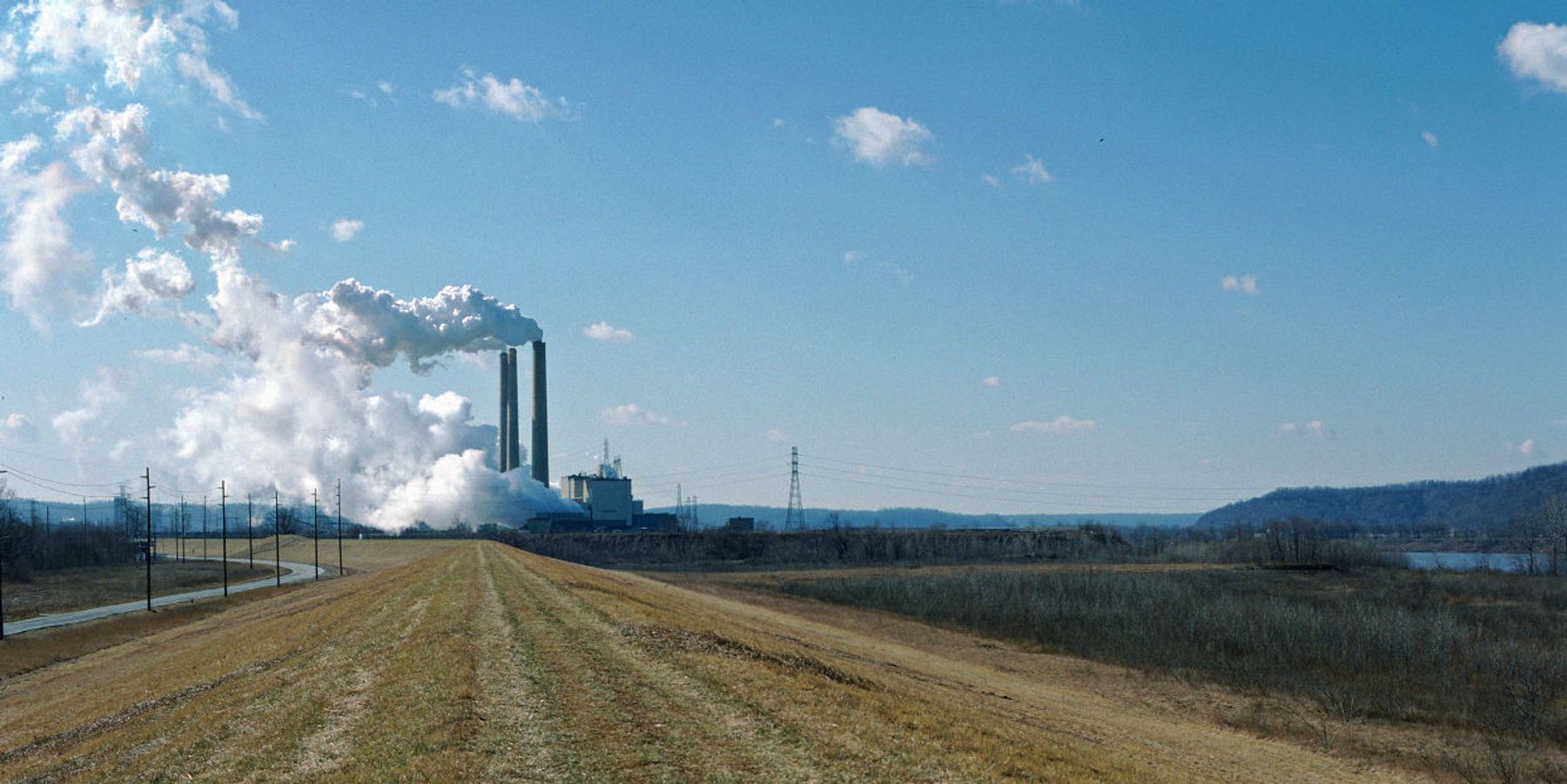
When coal plants decrease pollution or shut down, people have fewer asthma attacks
Inhaler use, ER visits and hospitalizations all decreased after a change in regulations
Asthma attacks decreased significantly among residents near coal-fired power plants after the plants shut down or upgraded their emission controls, according to a new study.
Coal-fired power plants emit air pollution that includes mercury, sulfur dioxide, nitrogen oxides, and particulate matter. Living near coal-fired power plants is linked to higher rates of respiratory and cardiovascular disease, and cancer, and premature death.
According to a study published this week in the journal Nature Energy, when those plants shut down or upgrade their emissions controls, rescue inhaler use, emergency room visits and hospitalizations for asthma all decrease among nearby residents. The study is the first to show decreased inhaler use following a reduction in pollution from coal plants, and builds on previous evidence that living near these facilities leads to increased asthma exacerbations.
The study was conducted between 2012 and 2017 in Kentucky, which ranks among the top U.S. states for air pollution from power generation. Researchers focused on Jefferson County, where one coal-fired power plant shut down and three others upgraded emission controls around the same time, and found that inhaler use, ER visits, and hospitalizations all fell—in some zip codes by up to 55 percent—following the reduction in emissions.
"We saw about three fewer emergency department visits and hospitalizations per quarter per zip code," Joan Casey, assistant professor at the Columbia University Mailman School of Public Health and lead author on the study, told EHN. "That translates into about 400 prevented asthma-related hospital visits per year across the county."
While many studies have looked at health impacts associated with living near coal-fired power plants, this is the first to use digital sensors to track rescue inhaler use among the same group of people before and after a drastic reduction in emissions. They did this by attaching sensors to rescue inhalers distributed among Louisville residents with asthma and chronic obstructive pulmonary disease, commonly referred to as COPD, starting in 2012. The sensors tracked the date, time, and location of each inhaler puff.
The researchers had data for 207 participants before and after the installation of "scrubbers," or emission reduction equipment, at the three coal-fired power plants in 2016. Comparing people to themselves before and after the pollution reduction allowed them to control for factors like socioeconomics, underlying conditions, indoor air quality, age, etc., which is harder to do with hospital data, Casey said.
In the months following scrubber installation, Casey and her colleagues saw an average reduction of inhaler use of about 17 percent, with continued declining use after that.
"A lot of studies have shown that populations living near coal-fired power plants have higher rates of respiratory hospitalizations," Casey said, "but it's been difficult to attribute those directly to coal-fired power plants because poor communities of color tend to be located closer to these facilities in the U.S., and they have a higher burden of diseases like asthma and COPD."
Because of the "natural experiment" created by the drastic change in emissions and the addition of the inhaler data, Casey believes their research more definitively links asthma attacks and resulting hospital visits to unchecked emissions from coal-fired power plants.
"All of that information together convinced us that what we were seeing was probably real," she said.
Rolling back regulations
Coal-fired power plants have been decommissioned at increasing rates each year as the cost of other power sources, like natural gas and renewables, become cheaper.
As of December 2018 (the most current data available), there were 336 predominantly coal-fired power plants still in operation in the U.S., according to the U.S. Energy Information Administration.
It's likely that similar improvements in asthma outcomes occurred in communities across the U.S. during the same time period of the study, thanks to a sweeping change in pollution regulations.
In 2014, coal-fired power plants accounted for 63 percent of sulfur dioxide emissions in the nation. The 2012 federal Mercury and Air Toxics (MATS) rule required all coal-fired plants to install scrubbers that reduce toxics like mercury and sulfur dioxide in emissions by 2015 (or 2016 if they got a special extension). During 2015, plants that had recently installed this equipment reduced their sulfur dioxide emissions by 49 percent.
"I think our findings are exciting," Casey said, "because we're seeing that the cost to install these scrubbers can be made back quickly just through prevented healthcare visits. We're only looking at asthma here, but we know there are other related health outcomes as well, so the benefits are likely far greater than what we're estimating."
But despite these benefits—and the fact that these pollution controls have already been successfully installed at coal-fired power plants across the country—the current U.S. Environmental Protection Agency administration intends to roll back the MATS rule, undoing the regulations that have kept people in places like Jefferson County, Kentucky, healthier.
The administration also recently announced plans to suspend enforcement of environmental regulations during the coronavirus pandemic.
"It's disappointing to see the EPA suspend enforcement of environmental laws during the COVID-19 pandemic," Casey said, "especially as we're starting to see stark disparities in COVID deaths among the same groups—communities of color and the poor—that face the greatest respiratory harm from pollution, including coal-fired power plants. We should be tightening environmental regulations, not abandoning them during this time."
Banner photo: The Mill Creek Generation Station coal plant in Louisville, Kentucky. (Credit: William Alden/flickr)













